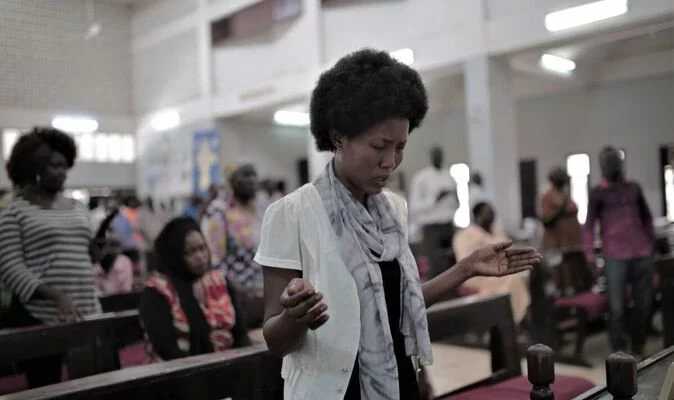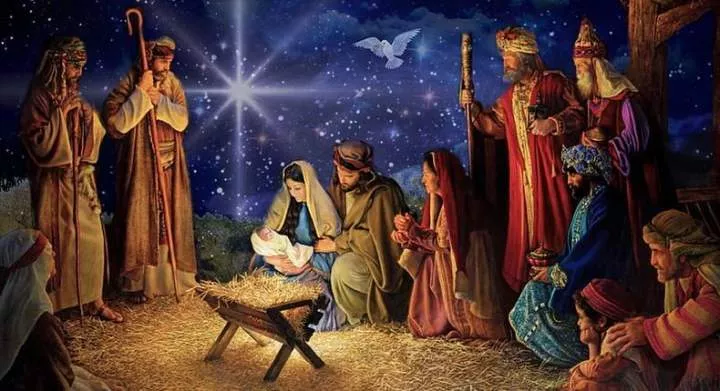![Boxing Day offers a chance to unwind, reconnect with loved ones, and create memories that last long after the decorations are packed away [Freepik] Boxing Day offers a chance to unwind, reconnect with loved ones, and create memories that last long after the decorations are packed away [Freepik]](https://static.netnaija.com/i/praR24RBaAo.webp)
The origins of Boxing Day are rooted in something far more gentle and steeped in tradition.
Unlike its festive neighbours, Christmas and New Year's, Boxing Day shimmers with an air of intrigue. Celebrated on December 26 in many countries, its name - Boxing Day - sparks curiosity.
While visions of gloves and ringside roars might dance in your head, the origins of this unique holiday are rooted in something far more gentle and steeped in tradition. So, grab a cup of eggnog and let's untangle the mystery of Boxing Day's curious moniker.
Pinpointing the exact origin of Boxing Day is like cracking a historical code, with several compelling theories vying for top billing. Each adds a captivating layer to the day's rich tapestry
The Roman alms box
One theory traces Boxing Day back to the Roman practice of placing boxes in churches to collect donations for the poor. These boxes were often opened on the feast day of Saint Stephen, which falls on December 26, coinciding with Boxing Day.
The servant's reward
Another popular belief connects Boxing Day to the Victorian era in England. During this time, wealthy families would traditionally give their servants Christmas boxes filled with gifts, money, and leftover food as a token of appreciation for their hard work over the holidays.
The feast day connection

In some European countries, like Ireland and Catalonia, December 26 is celebrated as the Feast of Saint Stephen. This religious holiday, commemorating the first Christian martyr, often incorporated traditions of gifting and feasting, which may have contributed to the development of Boxing Day customs.
From boxes to bonanza
While the exact origin remains a bit fuzzy, there's no doubt that Boxing Day has evolved into a day brimming with its own unique traditions. In many countries, it's a day for:
Festive feasts: Leftover Christmas delicacies get a second chance to shine, while some cultures boast special Boxing Day dishes like the South African Bobotie or the Irish St. Stephen's Day pie.
Shopping extravaganza: Post-Christmas sales ignite a shopping frenzy, with stores offering deep discounts and tempting deals, turning Boxing Day into a shopper's paradise.
Sporting spectacles: In countries like England, Australia, and Canada, Boxing Day comes alive with exciting sporting events like cricket matches, horse races, and even ice hockey showdowns, drawing in crowds for a day of friendly competition and festive cheer.
Acts of charity: Boxing Day serves as a reminder to give back to those in need. Food drives, donation appeals, and volunteer activities often find their place on this day, spreading the holiday spirit beyond personal celebrations.
Unwrapping the magic

So, as we raise a toast to Boxing Day, let's appreciate its unique blend of history, tradition, and modern-day merriment. Whether you're digging into leftover turkey, cheering on your favourite team, or giving back to your community, Boxing Day offers a chance to unwind, reconnect with loved ones, and create memories that last long after the decorations are packed away.
Remember, while the name might be a bit of a puzzle, the spirit of Boxing Day is clear: it's a day to celebrate, connect, and give back, making it a treasured gem in the post-Christmas season.
Happy Boxing Day! Let the unwrapping of joy continue!













![Police Arrest 28 Young Nigerians For Internet Fraud In Ghana, Seize 33 Laptops And 26 Mobile Phones [Video] Police Arrest 28 Young Nigerians For Internet Fraud In Ghana, Seize 33 Laptops And 26 Mobile Phones [Video]](https://img.netnaija.com/hsi/aHR0cDovL3d3dy5uYWlqYWxvYWRlZC5jb20ubmcvd3AtY29udGVudC91cGxvYWRzLzIwMTcvMDgvZnJhdWQuanBn/images/fraud.jpg)



Comments